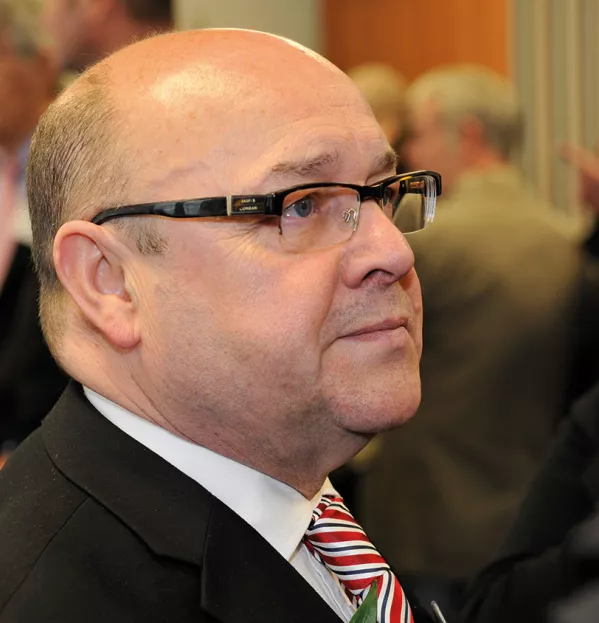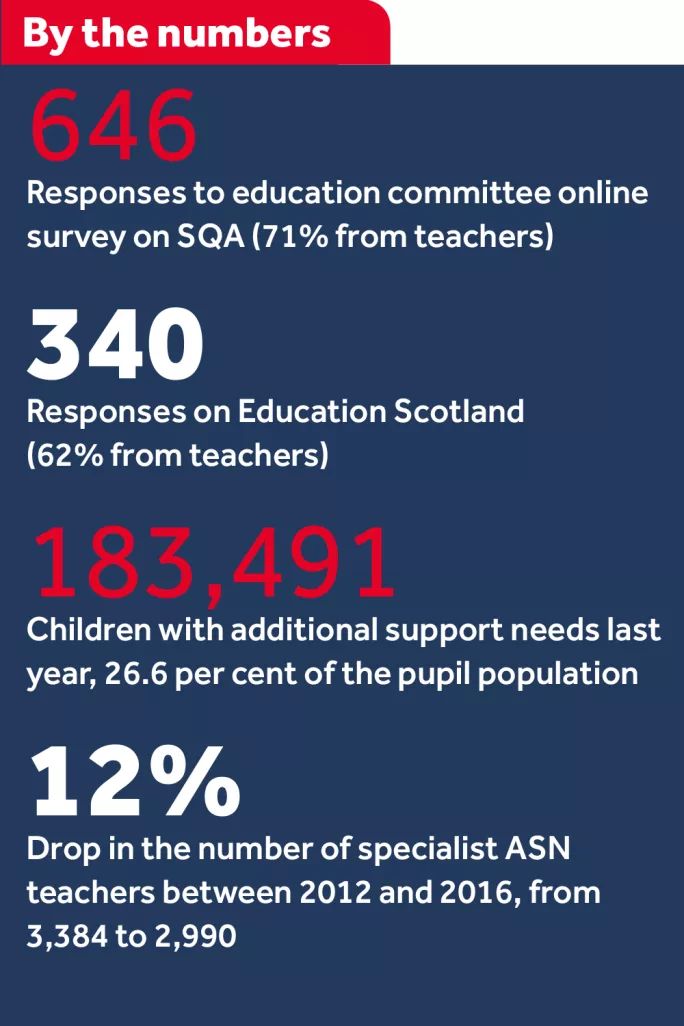‘We are not scared to take difficult decisions’

James Dornan left school at 15 to take up an apprenticeship at a tyre fitter’s. Schools were different places in the 1960s, when he was making his way through Glasgow’s St Mirin’s Primary and then Holyrood Secondary. They were “much more basic” says the SNP MSP and convener of the Scottish Parliament’s Education and Skills Committee.
Dornan is delighted that his children and grandchildren have had a different experience to his, and describes schools now as “worlds of opportunity”.
However, the MSPs on the committee have drawn attention to some of their failings. The committee has highlighted the lack of consistency in the way in which personal and social education is delivered - and found resources are “not currently sufficient” to support those with additional support needs (ASN) in mainstream schools.
Its investigation into workforce planning also led to teacher-education institutions facing tough questions about how well they were preparing new teachers to develop literacy and numeracy.
Quangos such as inspection body Education Scotland and the Scottish Qualifications Authority were also found wanting when it shone a light on their activities.
Online surveys conducted by the committee, which attracted a substantial number of responses from teachers, found a majority did not trust the SQA or see a strong connection between Education Scotland and the improvement of education.

‘Targeted money’
Dornan would like to see government funding for ASN ring-fenced, although he does not like that phrase, preferring to talk about “targeted money”. He believes that education secretary and party colleague John Swinney has “some sympathy” with the idea, which is contained in a recent letter sent this month to Swinney by the committee on the government’s draft budget.
The SNP scrapped ring-fencing shortly after the party came to power in 2007. But it has since been accused of reintroducing it through the back door by making the local government settlement contingent upon councils maintaining the pupil-teacher ratio and by giving £120 million directly to headteachers to tackle the attainment gap.
“If it’s something you feel strongly about you have got to say “this must be done - we are giving you this money and this must be done”, says Dornan.
Dornan was appointed education committee convener after the 2016 Scottish Parliament elections when Stewart Maxwell, the previous convener (and Dornan’s former boss), lost his seat. It was “an honour” to be appointed, Dornan says, given that under first minister Nicola Sturgeon, the government had made education its top priority.
The committee said early on that one of its goals was to hear directly from frontline staff. Part of this push means that it is holding open meetings in Glasgow and Peterhead this month to speak directly to teachers and pupils about the government proposals to change the way schools are run.
What these meetings would turn up remained to be seen at the time of writing, but it is likely to be bad news for the government.
An earlier consultation on the recent Education Governance Review found “widespread support for the current governance system and an apprehension towards further change within the system”.
As an SNP MSP, are there consequences for him when the education committee generates the wrong kind of headline? Dornan insists that there is an acceptance that the SNP is not a majority government, does not have a majority in committees and therefore “things will happen that the government does not like”.
He adds: “You have seen the reports we have done, which have all been unanimous. We are not scared to take difficult decisions or to hold the government to account. We are all after the same thing - we are all trying to make life better for children and young people.”
Committee divided
Recently, however, the committee has found itself divided. It has added to the government’s woes regarding its beleaguered Named Person policy, which aims to assign a professional - often a teacher - to ensure the welfare of every child.
A bill was due to go before the Scottish Parliament towards the end of last year to settle issues raised by the Supreme Court, which was unhappy with the way information would be shared under the scheme. However, last month the education committee voted against publishing a stage one report, which meant the legislation could not proceed.
The committee has said it wants to see a draft code of practice before agreeing to write a report on the Children and Young People (Information Sharing) Bill. John Swinney says that it could take until September this year “at the earliest” to produce the draft code. Named Person was due to come into force in 2016.
Dornan says he has always been a strong advocate for Named Person, but on the committee he found himself in the minority.
“If you have one point of contact and all help flows from that, it’s nice and simple because one thing that stops people from asking for help is that they think it’s too complicated,” he says.
But that is not how everyone on the committee saw it. Dornan adds: “Named Person was the most difficult decision we have had to make as a committee, because there were such divergent views.”
Now the committee is waiting for a response from government, but Dornan does not expect that to come for a couple of months.
In the meantime, there is plenty to keep the committee occupied.
The government’s focus on education ensures the committee is kept busy, says Dornan, who found the variety and range of topics that fall within its scope “stunning” when he started out as convener.
He says: “The truth is it shouldn’t be called the education and skills committee, it should be the children and young people committee.
“We cover everything from child protection and nurseries right through to apprenticeships - we cover every aspect of development.”
You need a Tes subscription to read this article
Subscribe now to read this article and get other subscriber-only content:
- Unlimited access to all Tes magazine content
- Exclusive subscriber-only stories
- Award-winning email newsletters
Already a subscriber? Log in
You need a subscription to read this article
Subscribe now to read this article and get other subscriber-only content, including:
- Unlimited access to all Tes magazine content
- Exclusive subscriber-only stories
- Award-winning email newsletters